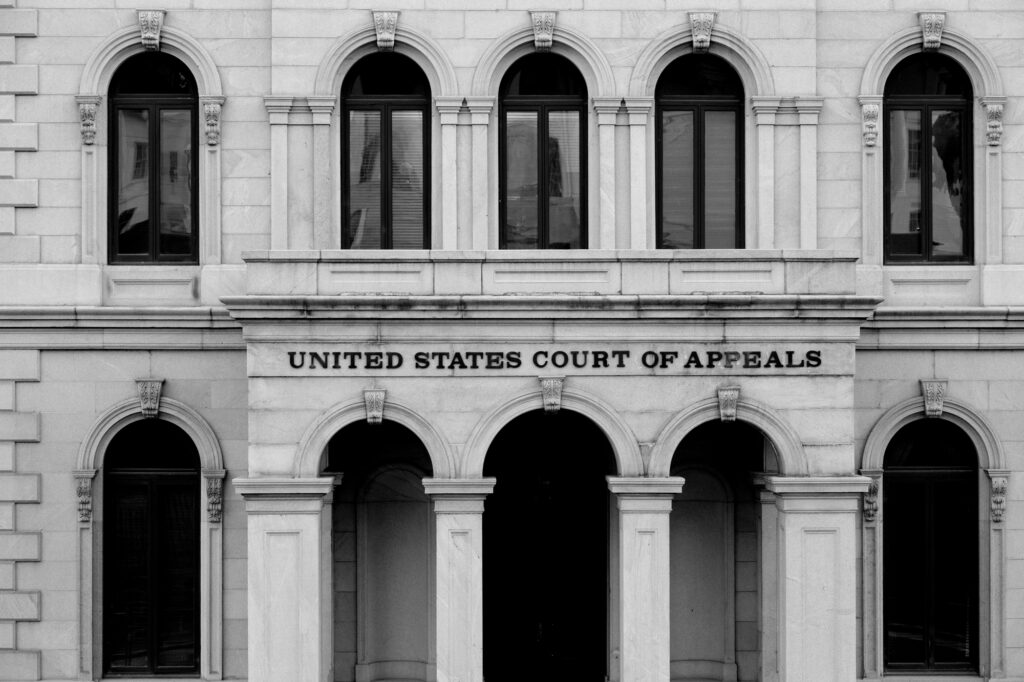This post concerns a recent Sixth Circuit decision at the intersection of removal and the interlocutory appeal doctrines as they apply to preliminary injunctions. The case is Schuler v. Adams, No. 21-1613 (Mar. 7, 2022). (Fair warning – this post is bit of procedural wonkiness – something I have a fondness for but others find incredibly dry!)
The relationship between state and federal courts is generally well-established. Federal courts do not typically review state court decisions except when the U.S. Supreme Court takes up a case that has proceeded through a state appellate court. But when a plaintiff files a case in state court, a defendant may “remove” the case to federal court when grounds for federal jurisdiction exists. This is a common practice for out-of-state defendants who find themselves haled into a foreign state court. Removal must be done in a timely fashion—pretty close to when the lawsuit is commenced. See 28 U.S.C. § 1446. When a case is removed by a defendant, the state court no longer has jurisdiction over the case and the federal trial court becomes the sole venue for resolving the lawsuit. After a case is removed to federal court, the case proceeds in the trial court like any other.
Federal appeals courts typically only have jurisdiction over “final decisions” of state courts except for certain types of non-final orders described in 28 U.S.C. § 1291. Section 1(a) of that statute permits federal appellate courts to review district court orders granting, continuing, modifying, refusing or dissolving injunctions. Such orders are termed “interlocutory” and appealable under the interlocutory order doctrine. There is no question that a federal appeal court may review a federal trial court order granting a preliminary injunction without waiting for the whole case to be over.
But what happens when a state court has issued a preliminary injunction and then the case is removed to federal court? May a federal appeals court review the state court order granting injunctive relief under the interlocutory appeals doctrine?
In Schuler, the Sixth Court, joining the First, answered this question in the negative, holding that Congress, in its appellate jurisdiction statutes, did not give federal appeals courts jurisdiction over a state trial court’s order granting or denying injunctive relief—even after a case is removed to federal court.
The court first turned to the text of 28 U.S.C §1291(a)(1). That statute reads “the courts of appeals shall have jurisdiction of appeals from [i]nterlocutory orders of the district courts of the United States” concerning orders on preliminary injunctions. The court reasoned that no average person would describe a “state trial court” order as an order “of” the district courts of the United States.
The court then addressed the defendants’ argument under 28 U.S.C § 1450. That statute concerns rules governing the removal of state court actions to federal court. Among other things, it provides: “All injunctions, orders, and other proceedings had in such action prior to its removal shall remain in full force and effect until dissolved or modified by the district court.” The defendants argued this requires treating the state court’s order as though it were an order “of” the federal district court. The Sixth Circuit disagreed. The court reasoned that the statute means the injunction remains in effect until the district court issues its own order dissolving or modifying the injunction. Further, explained the court, removal happens automatically upon filing, so a if a notice of removal dissolved a state-court injunction, a defendant could unilaterally void the injunction merely by filing removal papers without any judicial oversight.
What the defendants should have done, explained the appeals court, is first move the district court to modify or dissolve the state-court injunction. Armed with that order, the defendants could appeal the denial of the motion to dissolve or, alternatively, the plaintiffs could appeal the order dissolving the injunction.
The court also was concerned that adopting defendant’s view would place the appellate court in a fact-finding position. Appellate courts, however, review issues decided by others, and generally do not decide facts in the first instance. The reason this may occur is that the appellate court would first have to review whether the injunction was proper under federal standards, which may differ than the state standard.
And finally the court relied on the sole published circuit-court decision from the First Circuit that addressed the same issue and came to the same conclusion.
What is the takeaway?
When a plaintiff obtains a preliminary injunction from a state court, a defendant considering removing that case to federal court must consider whether and how it would challenge the preliminary injunction. It is not enough to remove and appeal the order granting injunctive relief. Instead the defendant may wish to challenge the injunction at the state-court level, if interlocutory appeal is permitted, and forgo removal. Or the defendant may remove and immediately thereafter file a motion to dissolve the injunction so that it may obtain an appealable interlocutory order.
























